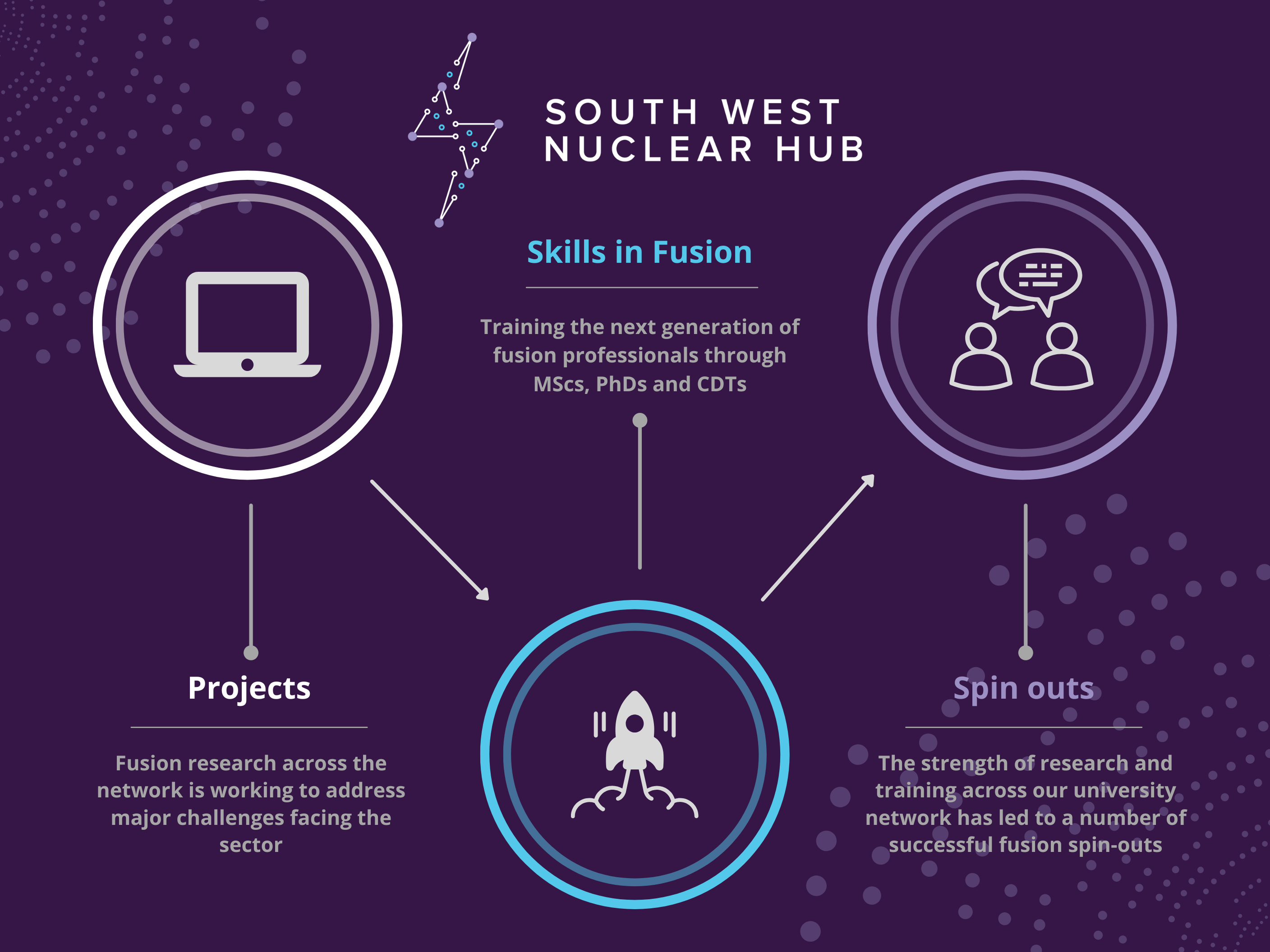It is an exciting time for the fusion industry, which continues to grow at pace. A recent report from The Fusion Industry Association states that over $7.1bn has been invested into the sector – see Fusion Industry Association’s annual report – but this is likely to be much higher with historical and international activities. In the UK, the Government has announced record funding of £410m for fusion research and development for 2025 and 2026 with the aim of kickstarting growth in the sector.

Perhaps more exciting is UKAEA’s contract for Whole Plant Partners for the Spherical Tokamak for Energy Production (STEP). This will be the first contract to actually build a commercial fusion reactor, certainly in the UK and one of the first internationally too. The shortlist for companies was announced in January, with contracts anticipated late 2025/early 2026.
This investment and contractual status signifies a shift in the development stage of fusion, moving from exploration to engineering. The technical challenges are evolving too. Focus is shifting from the fundamental understanding of plasma physics and magnetic confinement to engineering challenges around material selection and performance. Plus there is new research in system developments such as heat extraction and tritium breeding.
Spin-outs
The South West Nuclear Hub and its academic members are supporting efforts to realise the ambition of putting fusion power on the grid in the 2040s, not only through research but also by supporting the next generation of fusion professionals. The strength of research and training across our university network has led to a number of successful spin-outs:
First Light Fusion is a spin-out from the University of Oxford, founded in 2011. They now employ over 100 leaders, scientists, physicists and engineers to make inertial fusion a reality. First Light Fusion use advanced simulations, AI and machine learning to develop affordable fusion power plants.
Oxford Sigma spun-out from the University of Oxford in 2019 and is now a leader in fusion advanced materials. Oxford Sigma aims to accelerate fusion energy to become commercial by supporting enablers such as international standardisation and material production.
Astral Systems spun-out from the University of Bristol in 2021 and invented the first-of-a-kind multi-state fusion device, enabling solid-state fuel densities 400m times higher than those achieved in plasma.
Skills
From a skills perspective, the fusion industry is expected to grow by 2,200 people in the next five years. South West Nuclear Hub Director Professor Tom Scott sits on the UK Fusion Skills Council which is working to achieve this goal. Allied to the Skills Council, the UKAEA’s FOSTER programme (Fusion Opportunities in Skills, Training, Education and Research) has identified the need for up to 300 additional PhD students and more than 400 students trained in fusion-relevant skills.
The University of Oxford is part of the Fusion Centre for Doctoral Training, which will train over 100 PhD students over five cohorts, combining training with research to prepare the next generation of fusion scientists for leadership roles in the industry. Across the South West Nuclear Hub members, there are opportunities currently recruiting for PhD positions, for example:
Bangor University:
University of Bristol:
Advancing characterisation of creep cavity initiation and growth in fusion steels
University of Oxford:
The University of Bristol has also received bursaries from the FOSTER scheme for its Nuclear Science and Engineering MSc. FOSTER bursary: MSc Nuclear Science and Engineering | Current students | University of Bristol
University of Southampton:
While the fusion industry moves at pace from discovery to engineering to delivery, the South West Nuclear Hub and its members are doing the research, training the next generation and spinning-out internationally recognised companies to support the industry growth. By recently joining the Fusion Cluster, we hope to continue to collaborate in this space to bring our experts and their knowledge to bear on the biggest challenges in the sector. If you’d like to partner with us to help realise the fusion future, please contact enquiries@southwestnuclearhub.ac.uk.
Some fusion projects:
Materials
- Hydrides for fusion reactors, Bangor
- High entropy alloys, alumina forming austenitic steels, Bangor
- Crystal plasticity modelling for fusion materials, Oxford Crystal plasticity modelling for Fusion Energy | Department of Materials
- Smart Tungsten based alloys, Oxford Understanding phase decomposition in SMART-W alloys for fusion first wall applications | Department of Materials
- Materials Nuclear Fusion Materials | Oxford Atom Probe
Breeding tritium
- LIBRA
- LiFTOFF Bangor – molten Lithium breeder
- CENTRAL
- LiME – Lithium Isotope Microorganism Enrichment Bangor
Robotics and sensors
- Oxford - autonomous robotic dog inspections
- Inorganic glass scintillators to detect fast neutrons Bangor
Engineering
- Heat transfer in liquid metals under magnetic fields Bangor
- First Light Fusion Prosperity Partnership Oxford joins Imperial and York in £12 million fusion power industry partnership | University of Oxford

